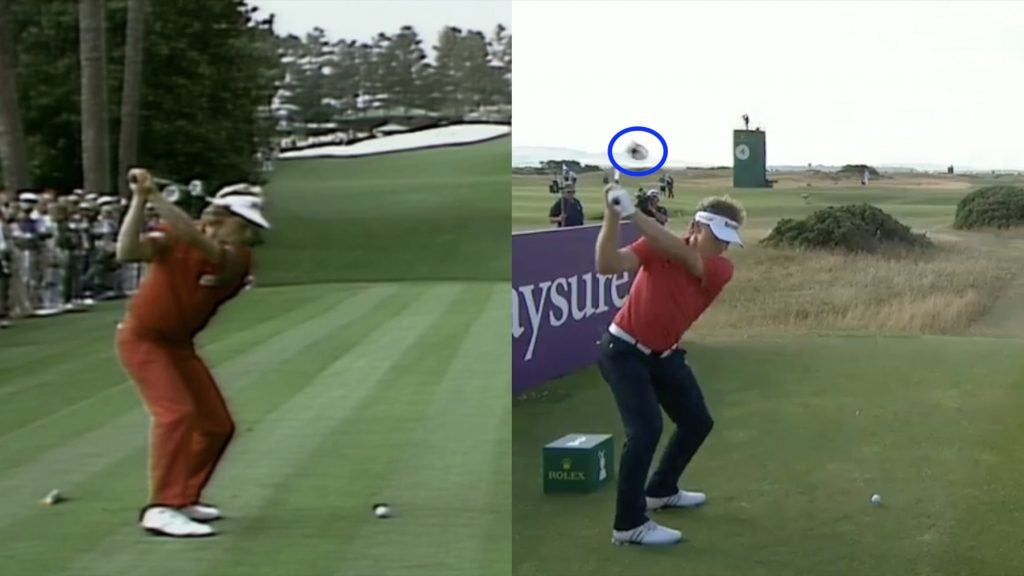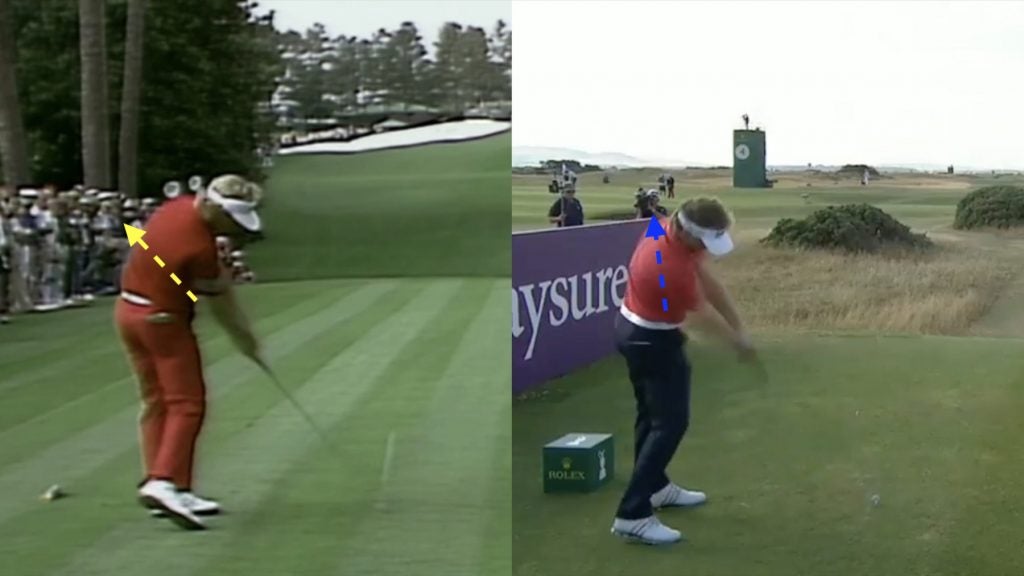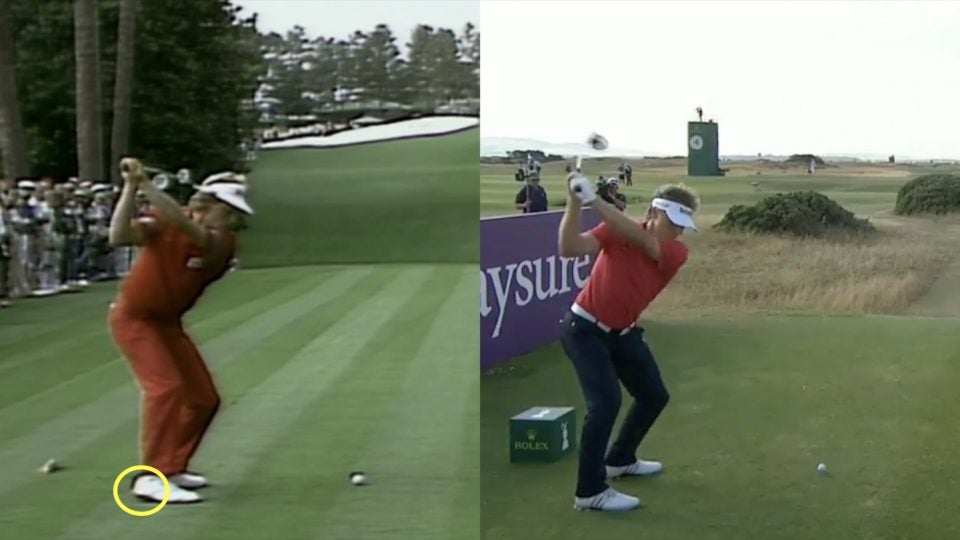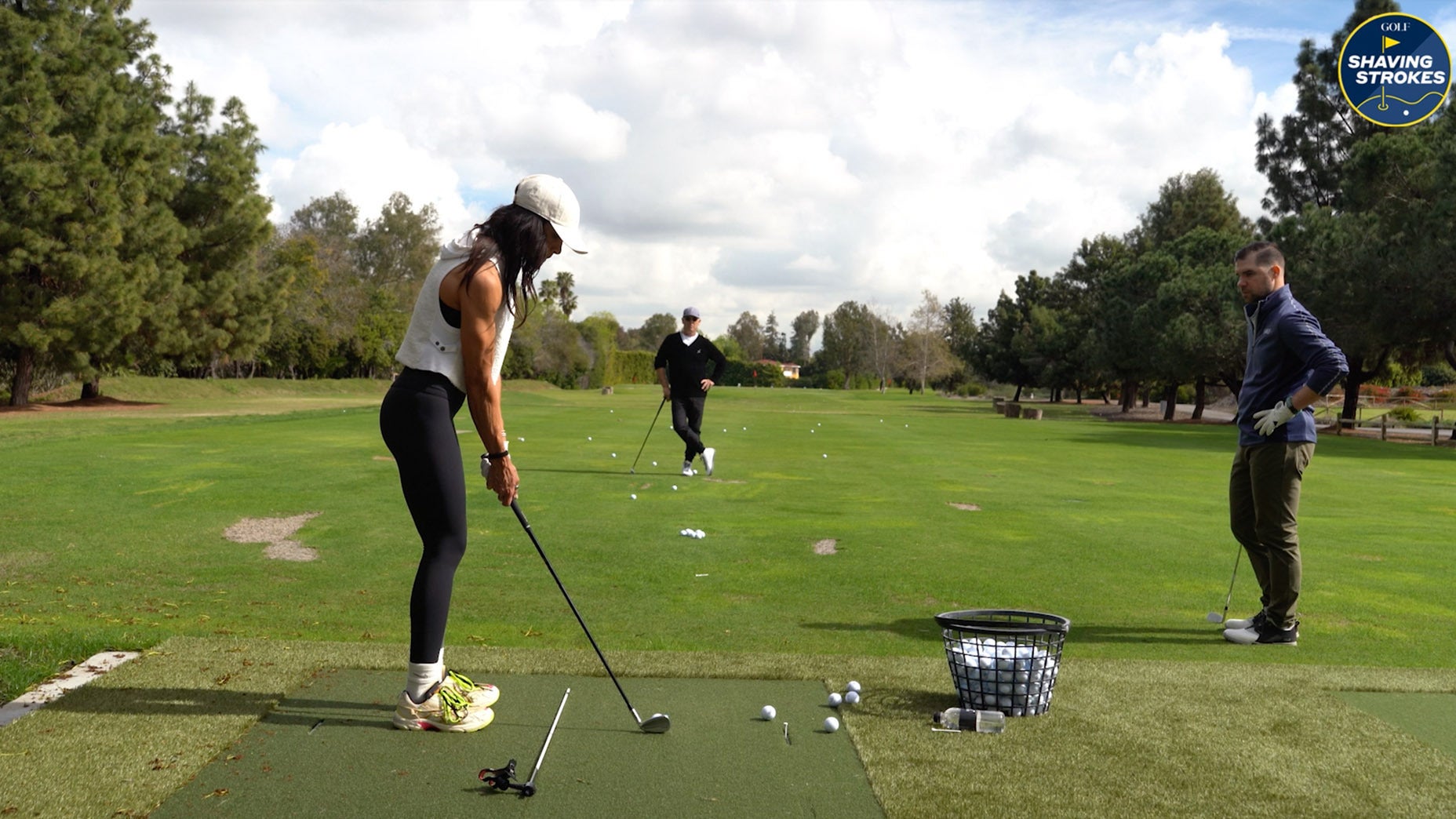Bernhard Langer first burst onto the scene with a win at age 23 at the 1980 Dunlop Masters. Thirty-eight years later, a 61-year-old Langer became the first player ever to win four times in his 60s, further cementing his status as golf’s bionic man.
So, in honor of Langer breaking yet another record, we wanted to take a quick side-by-side look at his golf swing. On the left is Langer en-route to his 1985 Masters victory; on the right, from earlier this season.

It really is remarkable how similar his swing has remained, but look closely, and you’ll spot some subtle differences.
Shorter
The wonders of technology and fitness have helped Langer actually gain about 20 yards since 1985. But his swing has also gotten shorter along the way.
Look at the clubhead pictured below; in the left frame, the club is past parallel and disappears behind Langer’s head. On the right, the shaft and clubhead are just short of parallel. Langer’s probably gotten less flexible over time, but as you can see, he’s made a concerted effort to reign in the wilder parts of his golf swing.

Stable
One key contributor to Langer’s new upper body position is the way his lower body operates through the backswing.
The camera angles aren’t perfect, but you can see the older Langer give himself a more stable base than in his younger years. His weight looks torqued firmly into the ground and pretty evenly distributed across both feet. On the left, his weight is more on his front foot, evidenced by his right heel creeping slightly off the ground.

Turn
The right heel crops up again later in Langer’s two swings.
On the left, Langer’s weight shifted forward entirely and his right foot is almost completely off the ground as a result. His lower body has cleared left — hard — and you can see his torso following along.
On the right, you can see his body has turned less and remains more tilted. The arrow along his shoulder line I’ve drawn is pointing more vertically in the right because his shoulders are more square at impact. His lower body isn’t firing as hard which means his hips aren’t as rotated, and you can see his right heel is closer to the ground.

Langer’s swing today may not be as powerful as it once once, but it’s more stable and controlled. His body may be getting older, but his swing has fewer moving parts than before, which makes it more repeatable and consistent. Langer’s swing is less dependent on physicality than it once was, and that’s the key to his longevity.








